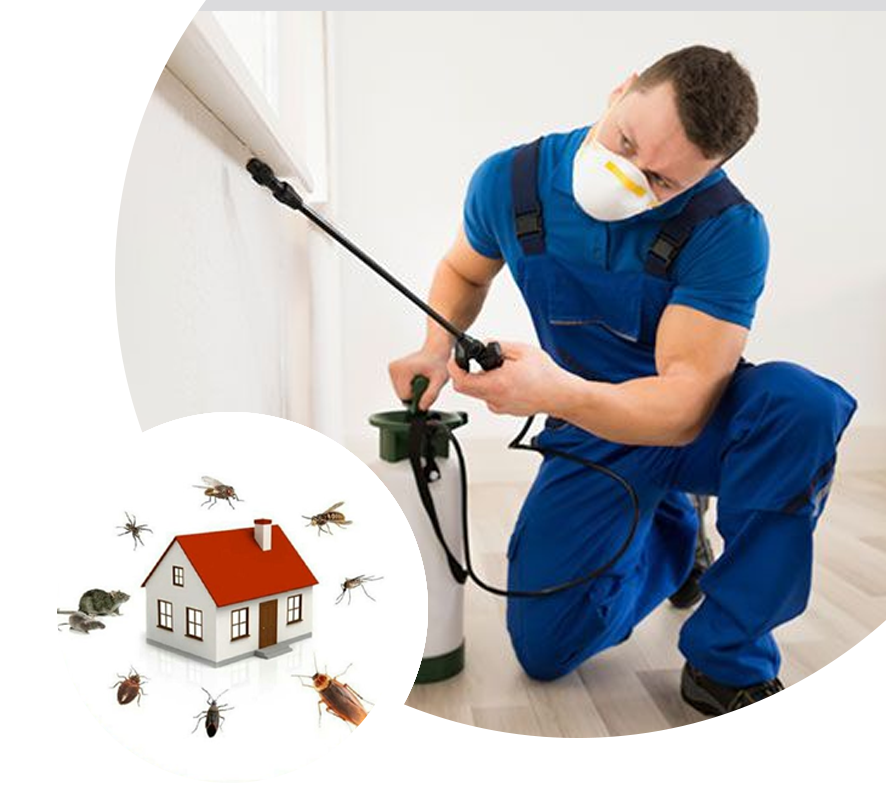Relied On Pest Control Near Me: Quick and Effective Solutions!
Relied On Pest Control Near Me: Quick and Effective Solutions!
Blog Article
Expert Insect Control Techniques for Long-Term Outcomes
Expert parasite control methods envelop an extensive technique that starts with a thorough inspection and evaluation, complied with by accurate bug recognition to understand their behavior patterns. The implementation of Integrated Parasite Management (IPM) principles, coupled with eco-conscious therapies, forms the foundation of lasting parasite elimination.
Assessment and Evaluation
Upon going into a home for parasite control solutions, the first action is an extensive inspection and evaluation to recognize the level of the problem and figure out the most efficient treatment strategy. Specialist insect control service technicians are trained to carefully check out the premises, trying to find indications of parasite activity such as droppings, munch marks, nests, or any architectural damage. They will certainly additionally analyze the problems that might be bring in bugs, such as food resources, water leakages, or access factors.

Pest Identification and Habits

Furthermore, recognizing the actions of the identified parasite is essential to carrying out efficient control steps. Recognizing where pests nest, what they feed on, and their activity patterns can assist pest control specialists develop techniques to eradicate them efficiently. Some pests might be nighttime, while others are extra active throughout the day. This knowledge permits the application of therapies at optimal times for optimum performance.
Integrated Insect Management (IPM)
Integrated Parasite Administration (IPM) techniques integrate numerous techniques to regulate and prevent insect infestations in a sustainable and eco-friendly manner. Pest control Washington DC. By integrating approaches such as organic control, habitat manipulation, adjustment of social techniques, and making use of immune ranges, IPM intends to reduce using chemical pesticides
Among the vital principles of IPM is the focus on avoidance. This proactive method involves surveillance parasite populations routinely to discover any kind of prospective problems prior to they intensify. By determining parasite issues beforehand, pest control actions can be applied quickly and effectively.
In addition, IPM advertises making use of non-toxic parasite control approaches whenever feasible. exterminator This can include using all-natural killers of the bugs, presenting helpful pests, or utilizing scents to interfere with breeding patterns. By lowering dependence on chemical pesticides, IPM not only protects the atmosphere yet also helps preserve an equilibrium in the community.
Environmentally-Friendly Treatments
Carrying out eco-conscious methods in insect control treatments can effectively attend to invasions while prioritizing ecological sustainability. Environmentally-friendly therapies concentrate on lessening the impact of insect control techniques on environments, non-target microorganisms, and human wellness. These methods usually involve using natural killers, such as ladybugs or nematodes, to control pest populations, reducing the requirement for chemical interventions. Furthermore, methods like habitat manipulation, such as changing dampness degrees or getting rid of food sources, can aid deter bugs without using dangerous compounds.
Another trick aspect of environmentally-friendly therapies is making use of natural and biodegradable products that break down quickly without leaving unsafe deposits in the setting. Agricultural insecticides stemmed from plants like chrysanthemums or neem provide reliable insect control while posturing very little danger to non-target species. Using approaches like heat therapies or scent catches can target certain pests with accuracy, minimizing the total environmental impact of insect control techniques.
Recurring Monitoring and Maintenance
Regular evaluations by trained experts are required to determine any kind of indicators of bug task, evaluate the performance of previous treatments, and make modifications to the pest control plan as required. By keeping an eye on parasite populaces over time, pest control professionals can track patterns, expect possible problems, and implement preventative steps to lessen the risk of future problems.
In addition to surveillance, maintenance methods are important for long-lasting insect control success. This includes applying proper hygiene steps to get rid of potential food and water resources for pests, sealing entry indicate stop pests from going into the facilities, and dealing with any type of architectural concerns that might facilitate parasite invasions (Pest control Washington DC). By including ongoing tracking and maintenance into an integrated parasite management approach, services can guarantee a pest-free atmosphere and guard their property versus pricey damages and health and wellness threats
Conclusion
In verdict, utilizing professional pest control strategies such as complete assessment and assessment, precise insect identification and understanding of their actions, integrated insect monitoring strategies, environmentally-friendly treatments, and ongoing monitoring and upkeep are necessary for achieving long-term lead to pest control. By applying these approaches, people can effectively manage bug infestations and preserve a pest-free setting in a sustainable way.
Report this page